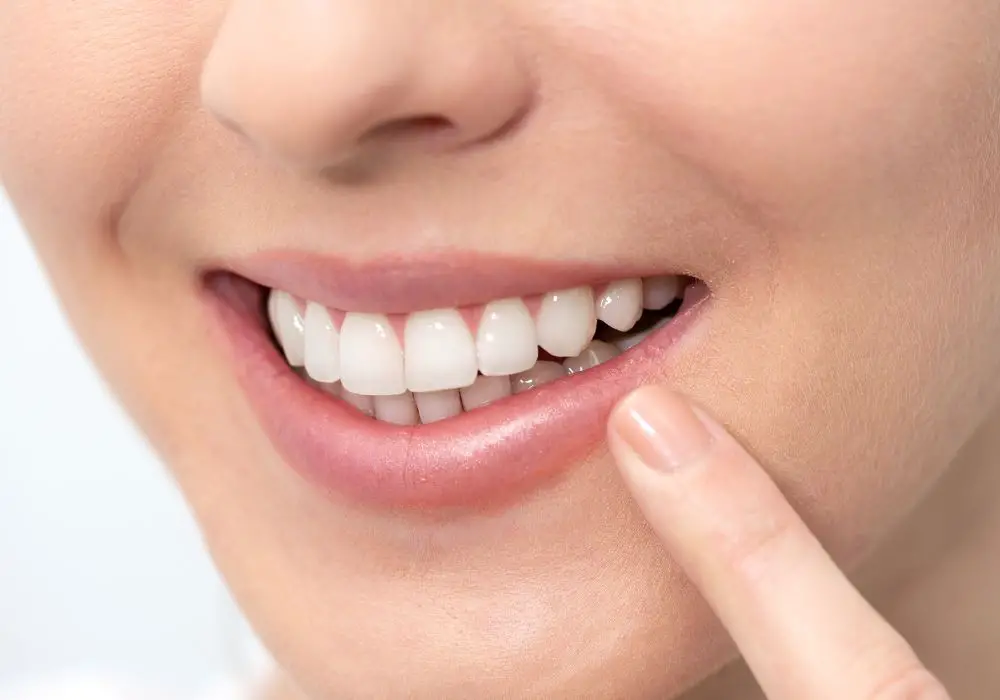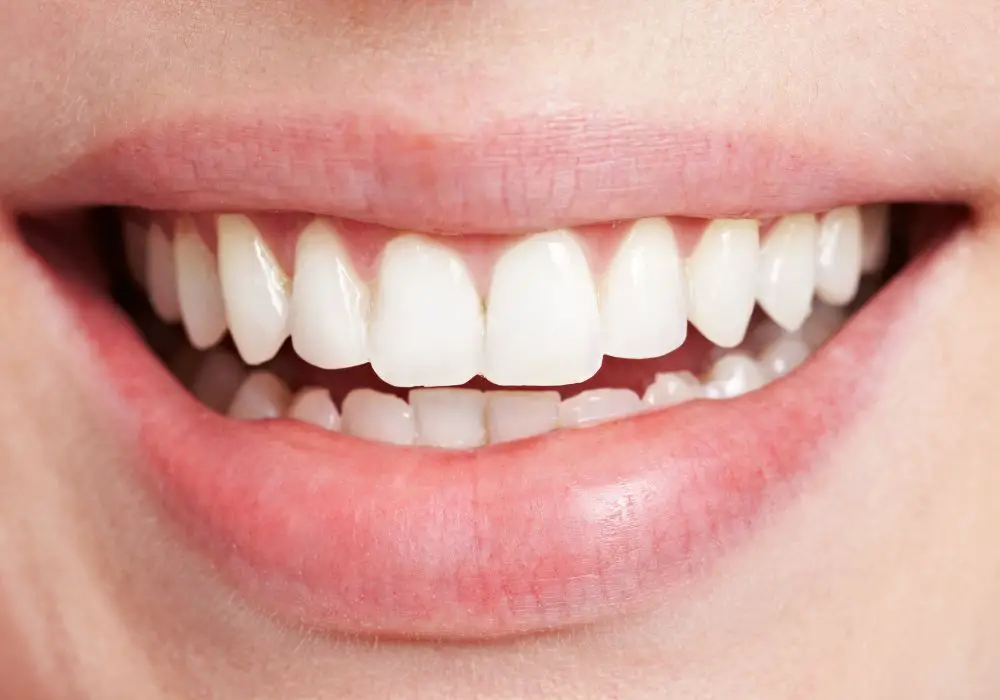If you’re curious about who has the widest teeth, you’re not alone. Teeth come in all shapes and sizes, and some people’s teeth are naturally wider than others. While the size of teeth can vary widely between individuals, there are some general trends that can help you understand who has the widest teeth.
One factor that can influence the width of teeth is genetics. Some people are simply born with wider teeth than others, just as some people have naturally straighter or whiter teeth. However, genetics is not the only factor at play. Diet and lifestyle can also have an impact on the size and shape of teeth. For example, people who consume a lot of sugary or acidic foods and drinks may be more likely to experience tooth decay and erosion, which can cause teeth to become narrower over time.
So, who has the widest teeth? While there is no definitive answer, some studies suggest that people of African descent tend to have wider teeth on average than people of European or Asian descent. However, this is just a general trend, and there is a lot of variation between individuals within each racial group. Ultimately, the size and shape of your teeth are determined by a complex interplay of genetic and environmental factors, and there is no one-size-fits-all answer to the question of who has the widest teeth.
Understanding Teeth Width

When it comes to teeth, size matters. Teeth come in different sizes and shapes, and understanding the width of your teeth can help you maintain good oral health and improve your smile. Here are some important things to know about teeth width:
Average Tooth Width
The average width of adult teeth varies depending on the type of tooth. According to research, the following are the average widths of adult teeth:
- Central incisors: 8.5-9.5 mm
- Lateral incisors: 7.0-8.0 mm
- Canines: 7.5-8.5 mm
- Premolars: 6.5-7.5 mm
- Molars: 10-11 mm
Tooth Width Discrepancies
It’s common for people to have tooth width discrepancies, where one tooth is wider or narrower than its counterpart on the other side of the mouth. This can cause cosmetic issues and affect the bite. Orthodontic treatment can help correct tooth width discrepancies and improve the appearance and function of your teeth.
Tooth Width and Dental Restorations
When getting dental restorations like crowns or veneers, the width of the teeth is an important consideration. The restoration should match the width and shape of the natural teeth to create a natural-looking smile. Your dentist will take measurements of your teeth to ensure the restoration fits properly.
Tooth Width and Oral Health
The width of your teeth can affect your oral health. Teeth that are too narrow or too wide can make it difficult to clean between them, which can lead to tooth decay and gum disease. Regular brushing and flossing can help prevent these issues, but it’s important to see your dentist for regular checkups and cleanings.
Understanding the width of your teeth can help you maintain good oral health and achieve a beautiful smile. If you have concerns about your teeth width, talk to your dentist or orthodontist for advice on the best treatment options for you.
Species with the Widest Teeth
If you are wondering which species have the widest teeth, you have come to the right place. In this section, we will discuss three animals that are known for their wide teeth: elephants, hippopotamuses, and crocodiles.
Elephants
Elephants have some of the widest teeth in the animal kingdom. Their teeth are used for grinding and chewing tough plant material. In fact, their molars can grow up to 7 inches long and weigh up to 10 pounds each! Elephants have six sets of molars throughout their lifetime, and as each set wears down, a new one grows in to replace it.
Elephants are herbivores and need their wide teeth to consume large amounts of vegetation. Their teeth are also unique in that they have a diamond-shaped pattern on the chewing surface, which helps them grind their food more efficiently.
Hippopotamus
The hippopotamus is another animal with wide teeth. Their teeth are used for crushing and grinding tough vegetation, as well as for defense against predators. Their canines can grow up to 20 inches long and are used to fight off other hippos and potential predators.
Hippopotamuses are also known for having some of the strongest bites in the animal kingdom. Their wide teeth, combined with their powerful jaw muscles, allow them to exert a bite force of up to 1,800 pounds per square inch!
Crocodiles
Crocodiles are known for their sharp teeth, but they also have some of the widest teeth in the animal kingdom. Their teeth are used for grabbing and crushing prey, as well as for defense against other animals.
Crocodiles have up to 80 teeth in their mouth at any given time, and they are constantly being replaced throughout their lifetime. Their wide teeth are serrated, which helps them grip onto their prey and tear off chunks of flesh.
In conclusion, elephants, hippopotamuses, and crocodiles are three animals that have some of the widest teeth in the animal kingdom. Their teeth are adapted for their specific diets and lifestyles, and they play an important role in their survival.
Human Teeth Width

When it comes to human teeth, the width can vary greatly depending on the individual and the type of tooth. According to a study, the mean width for central incisors is 8.74 mm, lateral incisors are 6.64 mm, and canines are 7.82 mm. However, these are just averages, and the actual width can be larger or smaller for each person.
It’s important to note that tooth width can also be affected by factors such as genetics, age, and dental health. For example, teeth may appear wider if there is gum recession or if they have been worn down due to grinding or clenching.
Additionally, the size and shape of teeth can also vary within an individual’s mouth. The upper lateral incisors are known to show the largest variation in shape, and can be peg-shaped, shovel-shaped, round instead of flat, or even larger than the front teeth.
Overall, while there are general averages for tooth width, it’s important to remember that there is a lot of individual variation. If you have concerns about the width or shape of your teeth, it’s best to consult with a dental professional for personalized advice.
Factors Influencing Teeth Width
The width of your teeth is influenced by various factors, including genetics, ethnicity, age, gender, and dental health. Here are some details about each of these factors:
Genetics
Your genes play a significant role in determining the size and shape of your teeth. Some people may have naturally wider teeth due to their genetic makeup. If your parents have wide teeth, there is a high chance that you will also have them.
Ethnicity
Studies have shown that there are significant differences in tooth size and shape among different ethnic groups. For example, people of African descent tend to have wider teeth than those of Asian descent. Caucasians tend to have teeth of average width.
Age
As you age, your teeth tend to wear down and become narrower. This is because the enamel on your teeth wears away over time, making them appear smaller. Additionally, as you age, your jawbone may shrink, which can also affect the width of your teeth.
Gender
There are also differences in tooth size and shape between males and females. Generally, males tend to have wider teeth than females.
Dental Health
Poor dental health can also affect the width of your teeth. If you have gum disease or tooth decay, your teeth may appear narrower due to the loss of gum tissue or tooth structure. Additionally, if you have missing teeth, your remaining teeth may shift to fill in the gap, which can also affect the width of your teeth.
In summary, the width of your teeth is influenced by genetics, ethnicity, age, gender, and dental health. While some factors are beyond your control, maintaining good dental health can help ensure that your teeth stay healthy and retain their natural width.
Teeth Width and Diet
Your diet can have a significant impact on the width of your teeth. Studies have shown that our ancestors had wider jaws and teeth due to their diet, which consisted of tough, fibrous foods that required more chewing. As humans began to cook and process their food, our jaws and teeth became smaller and narrower.
Processed foods and a diet high in sugar and soft foods can contribute to dental problems, including tooth decay and overcrowding. When you eat a diet low in nutrients and high in sugar, your body may not be getting the minerals it needs to build strong teeth.
On the other hand, a diet rich in whole, nutrient-dense foods can help promote healthy teeth and prevent dental problems. Foods like leafy greens, nuts, and seeds are high in calcium, which is essential for strong teeth. Vitamin C, found in fruits and vegetables, can also help prevent gum disease and promote healthy gums.
In addition to your diet, other factors like genetics and dental hygiene can also play a role in the width of your teeth. Regular brushing and flossing, as well as regular visits to the dentist, can help keep your teeth healthy and prevent dental problems.
Overall, taking care of your teeth through a healthy diet and good dental hygiene can help promote wider, healthier teeth.
Measurement of Teeth Width

When it comes to determining who has the widest teeth, one of the key factors to consider is the measurement of teeth width. The mesiodistal dimension of teeth is commonly used to determine the width of teeth. This measurement is taken from the mesial surface of a tooth to the distal surface of the same tooth.
Studies have been conducted to determine the average width of maxillary anterior teeth, which include the central incisor, lateral incisor, and canine. The mean width of the central incisor is around 8.74 mm, the lateral incisor is around 6.64 mm, and the canine is around 7.82 mm. However, it is important to note that these measurements can vary depending on factors such as gender and ethnicity.
To determine the width of a patient’s teeth, dentists may use various formulas and techniques. One commonly used formula is Chu’s formula, which uses the mesiodistal widths of the maxillary anterior teeth to calculate the arch length. According to this formula, the maxillary central incisor is typically around 8.5 mm, the maxillary lateral incisor is around 6.5 mm, and the canine is around 7.5 mm.
It is important to note that teeth width can vary greatly from person to person. Factors such as genetics, age, and dental health can all play a role in the width of a person’s teeth. Additionally, certain dental treatments such as braces or veneers can also impact the width of teeth.
Overall, while there are average measurements for teeth width, it is important to remember that each person’s teeth are unique and can vary in size and shape. Dentists can provide more specific information about the width of your teeth and how it may impact your dental health.
Teeth Width and Dental Health
The width of your teeth can affect your dental health in many ways. Here are some things to keep in mind:
- Tooth decay: Teeth that are too wide or too narrow can make it harder to clean between them, which can increase your risk for cavities. If you have wide teeth, make sure to floss regularly and use a toothbrush with a small head to reach those tight spaces.
- Gum disease: Wide teeth can also put more pressure on your gums, which can cause them to recede over time. This can lead to gum disease, which can cause tooth loss if left untreated. Be sure to brush gently and use a soft-bristled toothbrush to avoid damaging your gums.
- Bite problems: If your teeth are too wide or too narrow, it can affect your bite and cause problems with your jaw joint. This can lead to headaches, jaw pain, and other issues. If you notice any problems with your bite, talk to your dentist about possible treatments.
- Cosmetic concerns: If you’re unhappy with the width of your teeth, there are many cosmetic treatments available to help improve your smile. Talk to your dentist about options like veneers, bonding, or orthodontics to see what might be right for you.
Overall, the width of your teeth can play an important role in your dental health. Be sure to take good care of your teeth and talk to your dentist if you have any concerns.
Teeth Width in Popular Culture
Teeth have been a topic of fascination in popular culture for decades. From songs to movies, teeth have been represented in different ways. Here are a few examples:
- In the 1975 movie “Jaws,” the size of the shark’s teeth is a major factor in the fear factor of the film. The teeth are sharp and menacing, adding to the terror of the shark.
- In the song “All I Want for Christmas Is My Two Front Teeth,” the focus is on missing teeth. The song is a lighthearted take on the awkwardness of losing teeth as a child.
- In the TV show “Friends,” the character Ross has a famous line about his teeth: “I went to the dentist today, and he said I need a crown. I said, ‘I know, right?'” The joke is that Ross is proud of his teeth and doesn’t see the need for a crown.
- In the world of fashion, models with a gap between their front teeth have been celebrated for their unique look. Models like Lara Stone and Georgia May Jagger have embraced their gap-toothed smiles and made them a signature feature.
Overall, teeth width and appearance have played a role in popular culture in various ways. While there is no clear winner for who has the widest teeth, it’s clear that teeth are an important part of our cultural landscape.
Frequently Asked Questions
Which animal has the largest teeth in proportion to its body size?
The shrew has the largest teeth in proportion to its body size. Its teeth are so large that it needs to constantly gnaw on things to keep them from growing too long.
What animal has the longest canine teeth in the cat family?
The saber-toothed tiger, which is now extinct, had the longest canine teeth in the cat family. Its canines could grow up to 7 inches long.
What animal has the biggest gap between its teeth?
The hippopotamus has the biggest gap between its teeth. Its teeth can grow up to 1.5 feet long and are used for fighting and display.
What animal has the sharpest teeth?
The great white shark has the sharpest teeth of any animal. Its teeth are designed to easily slice through flesh and bone.
What is the largest human tooth ever found?
The largest human tooth ever found was a molar that measured 1.3 inches in length and 0.9 inches in width.
What is the size of an African elephant’s teeth?
African elephants have the largest teeth of any land animal. Their molars can weigh up to 11 pounds each and measure up to a foot long.






